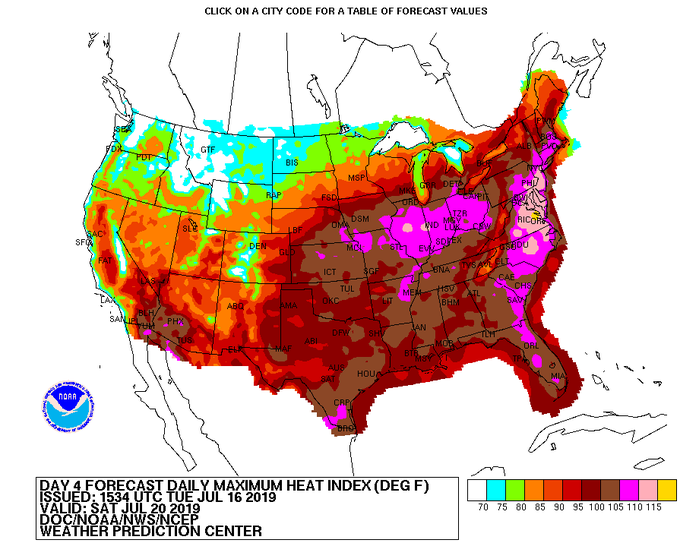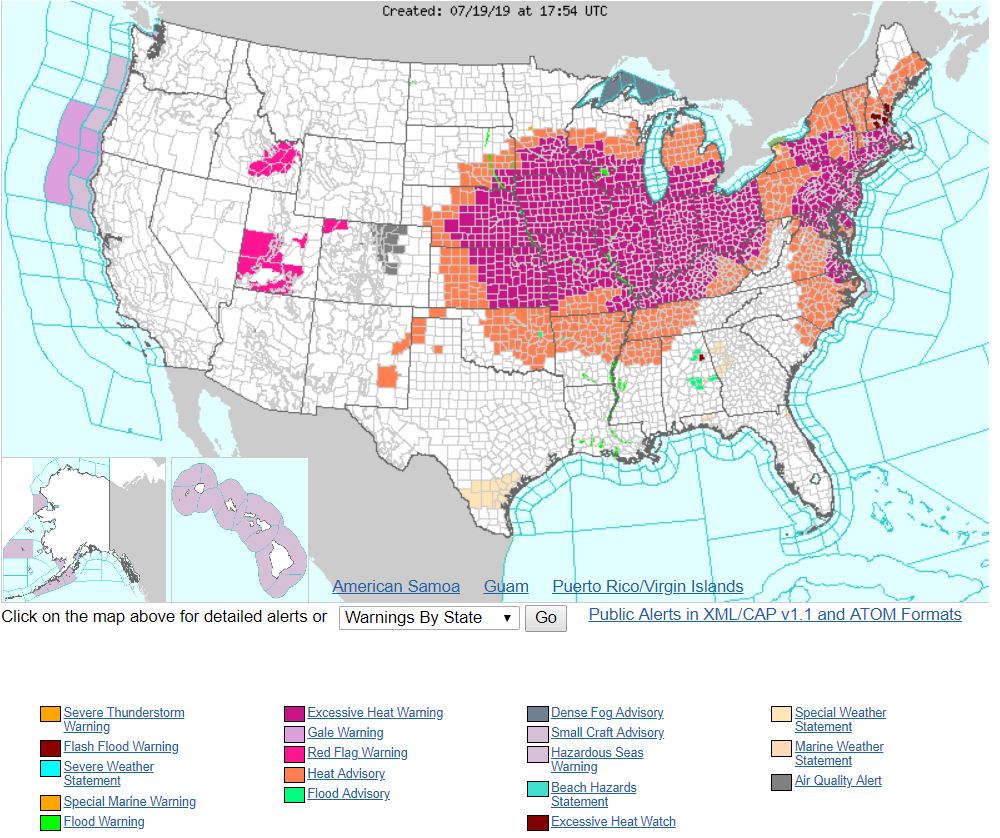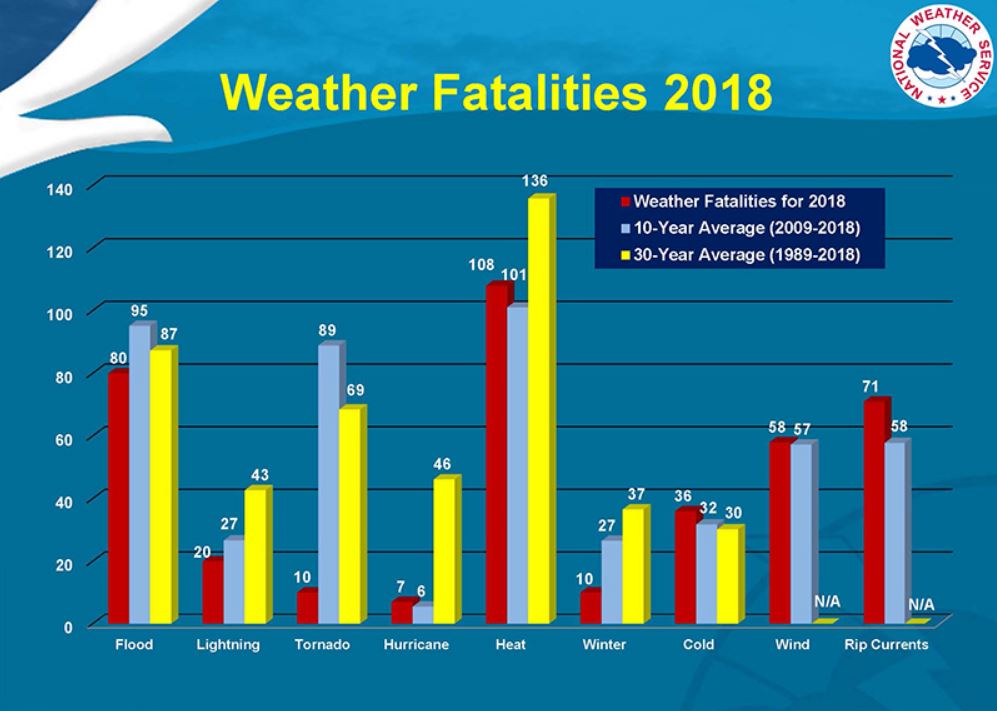Two-thirds of the United States is set to experience a “dangerous and widespread” heat wave this weekend.
Temperatures are expected to rise above 100 degrees in many parts of the midwest and the East Coast, affecting millions of people.

The National Weather service writes:
“A large ridge of high pressure extending from the Central to Eastern U.S. will deliver a dangerous summer heat wave through the weekend. Widespread excessive heat warnings and heat advisories already cover the Eastern two-thirds of the country. A number of record highs and overnight warm minimum temperatures are likely. Heat indices will surge past 100 degrees and approach the 110s.”
A scorching #heat wave will consume about two-thirds of the country mid to late week into the weekend. About a total of 20 to 30 record highs are possible this #Friday and #Saturday, from the Front Range of the south-central Rockies to the East Coast. #heatwave pic.twitter.com/VtrTlIbWsb
— National Weather Service (@NWS) July 16, 2019
The weather service has issued heat advisories and excessive heat warnings — meaning the maximum heat index temperature is expected to be at least 100 or 105 degrees, respectively, for at least two days, with night temperatures remaining above 75 degrees — throughout much of Iowa, Missouri, Arkansas, Illinois, Nebraska and Kansas.
The heat is on! Millions will endure a heat wave later this week. Warm overnight lows will provide no relief.
— NWS WPC (@NWSWPC) July 16, 2019
Extreme heat is dangerous. Please visit https://t.co/L4FyvSS6lj for information on how to protect yourself and others.
WPC Heat Index maps: https://t.co/senttGiyVY pic.twitter.com/ny9W8C6Q5R
This other map is really impressive too:
Look at the impressive and widespread coverage of #heat related warnings and advisories across the Eastern two-thirds of the country. The hazy, hot and humid conditions will persist through the weekend. Be smart and stay cool! #HeatSafety pic.twitter.com/hemIJ79rOr
— National Weather Service (@NWS) July 18, 2019
There are also heat advisories for eastern parts of Virginia, North Carolina, South Carolina, Delaware and New Jersey, with an excessive heat warning in the Philadelphia area.

“July is the warmest month of the year globally,” Michael Mann, a climate scientist at Penn State, tweeted on Monday. “If this July turns out to be the warmest July (it has a good shot at it), it will be the warmest month we have measured on Earth!”
This is significant. But stay tuned for July numbers. July is the warmest month of the year globally. If this July turns out to be the warmest July (it has a good shot at it), it will be the warmest month we have measured on Earth!#RecordWarmth #ClimateChange #NotSubtle https://t.co/cuXQLOEz7G
— Michael E. Mann (@MichaelEMann) July 15, 2019
Extreme heat causes more fatalities than any other weather hazard in the country, including hurricanes and tornadoes, according to U.S. Natural Hazard Statistics.

And scientists have warned that incidents of extreme heat are likely to occur even more frequently and for longer periods of time in the near future.
In preparation for this weekend, Philadelphia, Chicago and New York City are operating cooling centers as they expect “extremely dangerous heat.”
Officials are encouraging people to stay in an air-conditioned place, remain hydrated, check on neighbors who might be especially vulnerable to heat and be careful about strenuous outdoor activities.












